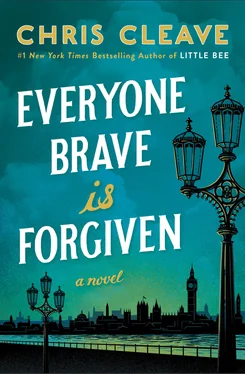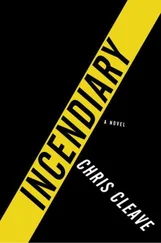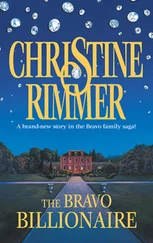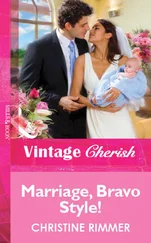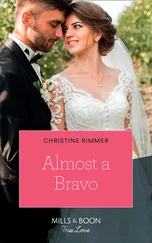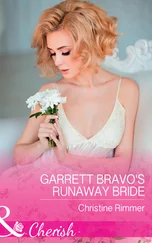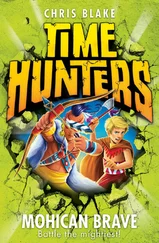Alistair smiled gamely while the universe splintered and re-formed itself into this different configuration with a concussion that none of the other diners seemed to feel.
“How do you do?” said Mary.
“How do you do?” said Alistair, since that was what one said.
“And this is Hilda,” said Tom, nodding to the girl with the pompadour.
“Delighted,” said Alistair.
“I hope you don’t mind a gate-crasher,” said Hilda, managing to smile effervescently and look perfectly worried both at once. It was a feat that in another time Alistair knew he would have found endearing.
“Tell me if a gate-crasher turns up, and I’ll tell you if I mind.”
Hilda laughed, and they shook hands. “Tom said you were funny.”
“Did he also mention that I’m rich and a world-renowned dancer?”
“Behave!” said Tom, and Alistair clicked heels and gave him a deferential salute that set both women giggling.
White wine came, and Tom filled their glasses. “This stuff is actually Champagne,” he said, “only the bubbles have been requisitioned to give buoyancy to our submarine fleet. You will see that there have been a lot of changes while you’ve been away playing soldiers.”
“Apparently the girls have become lovelier,” said Alistair, flashing a grin at the women and intending to grace them both equally. His eyes snagged on Mary’s, though, and in his embarrassment he almost blushed.
She handled it calmly.
“Hilda is my loveliest friend,” she said. “We were at school together.”
“I was the frumpy one,” said Hilda.
“Not at all,” said Alistair, coming gratefully back to her eyes.
A waiter put down four dishes of the day, in such a manner that nearly all the gravy stayed on the plates. “Lamb,” he claimed, and took himself off.
Mary prodded at hers with a fork. “Whatever it may have been, its suffering is over now.”
Tom raised his glass. “Well, here’s to us all. May we be as tough as the lamb, and luckier.”
“And here’s to you two,” said Alistair, sweeping his glass in an arc that encompassed Tom and Mary. It gave both toast and fealty, and he marveled that his arm had come up with the perfect movement all on its own.
“Yes,” said Hilda, “aren’t they sweet together?”
She smiled at him, he smiled back, and although he did not want it at all he saw now how the long day would be — how it must be — with the intimacies between himself and this perfectly nice girl serving as proof that he was not fascinated by Mary. There was no use making a fuss about it.
“So, Hilda,” he said, “tell me about yourself.”
She did.
After dessert the women went together to the women’s room, and Alistair lit his pipe. Tom’s cheeks were flushed with wine — they had taken a second bottle — and he drew fiercely on one of Mary’s Craven “A”s.
“Isn’t Mary something?” he said.
“Tom, she is one in a million. One in a thousand million.”
“Isn’t she? Actually”—he leaned in and dropped his voice—“it hasn’t been plain sailing.”
“No?”
“Plus, I have to fight with this voice that insists she’s too good for me.”
“That voice speaks the truth. If it gives you any racing tips, be sure to let me know immediately.”
“Do you suppose I should call the whole thing off?”
“Oh, Tom, I understand that your brain is large and perpetually at war with itself, but I hope it’s not unkind to enquire why you don’t simply ask her to marry you and let her decide if you’re good enough?”
“Well…”
“Look, do you believe in the institution of marriage?”
“Of course.”
“And you accept that such beautiful lightning cannot strike you twice?”
“Well yes, I suppose—”
“Then shouldn’t you get a ring on her as soon as possible?”
“It’s just that I want to pick a moment when everything is going well.”
“Tom, there’s a Blitzkrieg on. Women’s hearts are being captured at astonishing speed. You can’t just let a girl like that walk around in the wild.”
Tom slumped. “As clear-cut as that, you think?”
Alistair slapped his old friend on the shoulder. The wine made him warm and loose, and there was comfort in falling into their old roles of the sophisticate and the tenderfoot. Drink made everything better. The eye no longer saw what bodies became: the snapped bones and those poor, weeping veins missing their familiar connections. Drink was the warm resin that enveloped living bodies, fixing them in the amber of the present.
“I’m happy for you,” Alistair said, and he meant it. “I don’t know how you’ve done it, but I can only humbly marvel.”
Tom sucked on his cigarette. The women came back to the table: Mary first, with fresh crimson lips and a faint air of soap; Hilda following, her hairdo reinforced with spray, smelling of Vol de Nuit.
“This dive still won’t get a gramophone,” Hilda said, tapping out a menthol cigarette. Alistair lit it for her. She cupped her hands around the lighter, holding his for a moment. It was not an unpleasant feeling. He watched her face as she drew against the flame. She was a warm, likable, undramatic girl. He had twenty-one hours left in the world.
“What kind of music do you like?” said Hilda, exhaling.
“Tell us about the war,” said Mary in the same moment, and then, “Oh, I’m sorry.”
“No, I’m sorry,” said Hilda.
Alistair smiled from one to the other with modest neutrality. “I’m ashamed to admit I’m no expert on either. I’m afraid you’ll think me rather a bore.”
“Not at all,” said Hilda.
“Yes, rather,” said Mary at the same time.
She fixed Alistair with a look that was, he felt, principally comic. If there was a certain sharpness to it, the wine took the edge off. He took another sip.
“I like the big bands,” he said, struggling to name one. “Something with a bit of zip.”
“Oh, I adore the big bands,” said Hilda. “Bert Ambrose! Harry Roy!”
“Harry Roy,” said Alistair. “Now, there’s a man who knows music.”
He hoped Harry Roy was a bandleader and not a monkey mascot or a new kind of dance. Hilda seemed delighted, so it was probably all right. Her dimples were nice. He understood that he was seducing her, which it seemed would be achieved simply by remaining in the uniform of a captain in the Royal Artillery until such a time as it became appropriate to remove it.
“We only know what we read in the papers,” said Mary, lighting a cigarette.
Alistair’s nerves sparked when he looked at her. He hoped the jolt wasn’t visible in his eyes. How ordinary Hilda was, beside Mary — and how shabby his own need for warmth.
He took some more wine. “You probably all know more than I do, about the overall situation. I’m afraid they only tell us chaps what we need to know: come here, look lively, bunk up, dig in.”
“Tom tells me you fought the Germans in France,” said Mary.
He looked down at his glass. “Briefly, yes.”
“What was it like?”
In her face there was a simple anxiety that he could hardly bear. It made her so tender. He found he couldn’t speak.
“Darling…” said Tom, putting a hand on her arm.
“Oh, I’m sorry,” she said.
“Oh no, that’s quite all right,” Alistair said quickly.
She blushed, and he realized that perhaps she was a little drunk too. He was a swine for making the moment awkward. He wondered what he could say: show a temperate reply that her question had not been out of place, and also to answer her honestly.
But what ought he to tell her? None of it was suitable to relate. The Germans had swooped on them in stiff airframes with bull whistles screaming. Under the hardened sky they had squared off the undulant plain with gray armor. They always held the direct line. They scorned roads that had wound for millennia. People and animals were spooked — the land had no natural resistance to the pure black method.
Читать дальше
